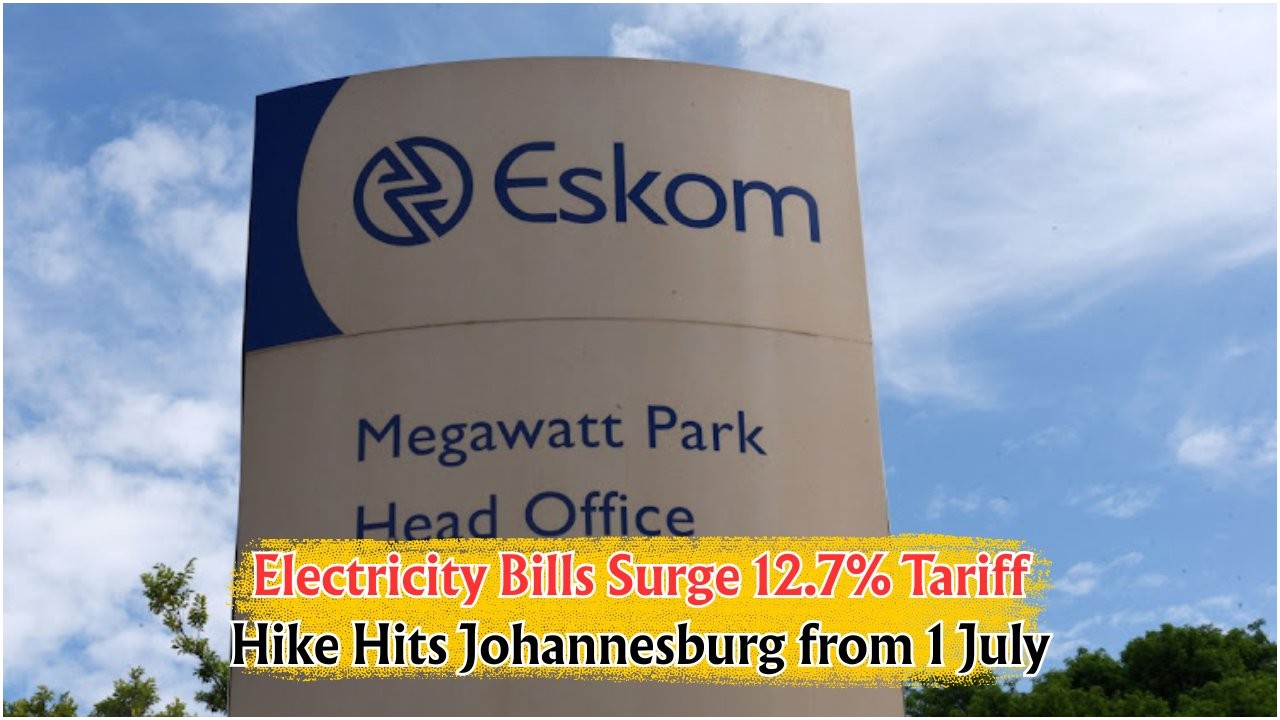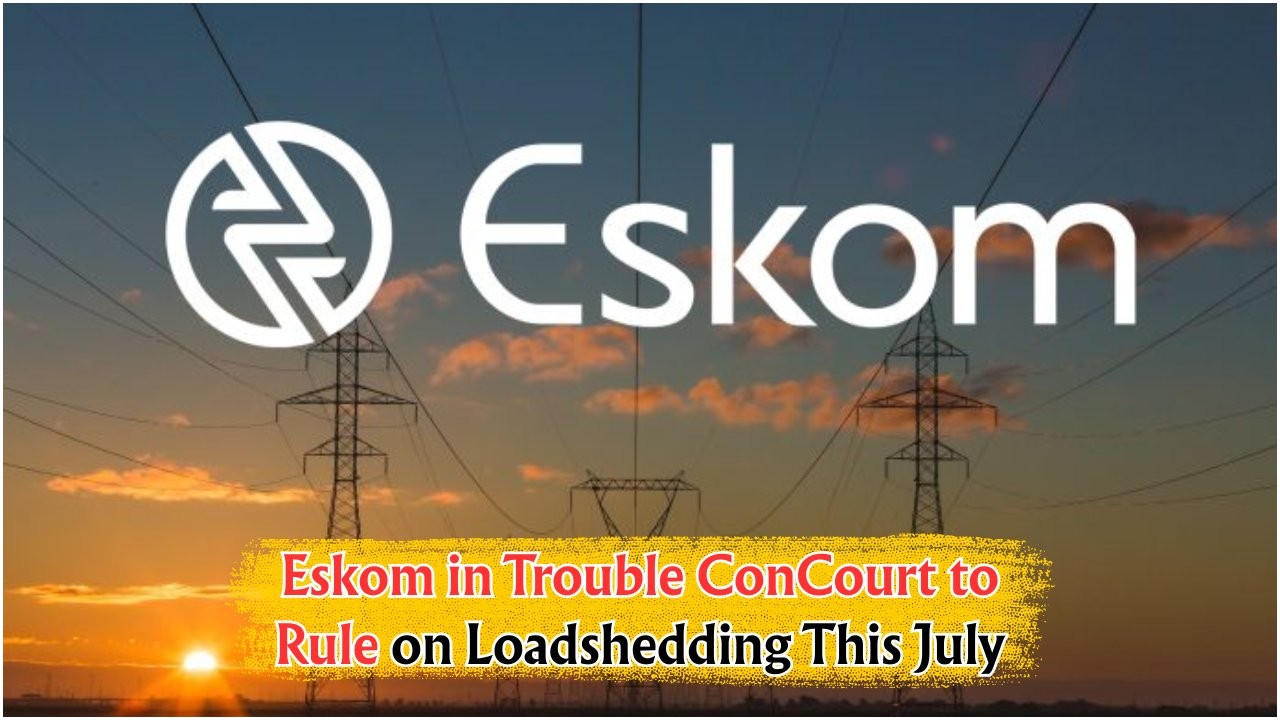Eskom’s 12.7% Electricity Price Increase: The announcement of a significant 12.7% electricity price increase by Eskom effective from 1 July has left many South African households concerned about the potential impact on their monthly budgets. As the country’s primary electricity supplier, Eskom’s pricing decisions have far-reaching effects on the economy and the daily lives of ordinary citizens. With prices already a pressing issue, this hike could further strain household finances, forcing many to reassess their spending habits and energy consumption. Understanding the broader implications and exploring ways to mitigate these effects could be crucial for many South Africans in the coming months.
Understanding Eskom’s Recent Price Hike
The decision to increase electricity prices by 12.7% has been attributed to several factors, including operational costs, infrastructure maintenance, and the need to invest in sustainable energy sources. Eskom has emphasized the necessity of this hike to ensure the reliability and stability of electricity supply across the nation. However, critics argue that such steep increases disproportionately affect lower-income households, exacerbating economic inequalities. Given the current economic climate, many consumers are left with no choice but to absorb these additional costs, leading to increased financial pressure.
- Operational costs have risen significantly.
- Investment in renewable energy is a priority.
- Infrastructure maintenance is essential for reliability.
- Economic inequalities may be exacerbated.
Impact on Household Budgets Across South Africa
For many South African households, the latest electricity price increase presents a challenge to maintaining financial stability. Families may need to cut back on other expenses to accommodate the higher utility bills. This adjustment might mean prioritizing essentials over discretionary spending, affecting the quality of life. Moreover, the increased financial burden could lead to a rise in the number of households experiencing energy poverty, where a significant portion of income is spent on electricity, leaving less for other necessities.
| Household Income | Current Electricity Cost | New Electricity Cost | Difference | Percentage Increase |
|---|---|---|---|---|
| Low Income | R500 | R563.50 | R63.50 | 12.7% |
| Middle Income | R1000 | R1127 | R127 | 12.7% |
| High Income | R2000 | R2254 | R254 | 12.7% |
Strategies to Cope with Increased Electricity Costs
In response to the price hike, many households are seeking ways to manage their electricity consumption and mitigate costs. Implementing energy-efficient practices can significantly reduce electricity bills. Simple changes such as using energy-saving light bulbs, unplugging devices when not in use, and optimizing the use of appliances can make a noticeable difference. Additionally, investing in renewable energy solutions, like solar panels, can provide long-term savings and reduce reliance on the grid.
- Switch to energy-saving appliances.
- Unplug devices when not in use.
- Consider solar panel installation.
- Optimize appliance usage.
Exploring Renewable Energy Options
As Eskom’s prices continue to rise, renewable energy sources offer a viable alternative for cost savings and environmental benefits. Solar power, in particular, has gained popularity among South African households due to the country’s abundant sunshine. Installing solar panels can be a substantial upfront investment, but it offers significant long-term savings by reducing or eliminating electricity bills. Additionally, government incentives and financing options are available to assist with the initial costs, making renewable energy more accessible to a broader range of consumers.
| Renewable Energy Source | Initial Investment | Long-Term Savings | Environmental Impact | Government Incentives |
|---|---|---|---|---|
| Solar Power | High | Significant | Positive | Available |
| Wind Power | Moderate | Moderate | Positive | Limited |
| Hydropower | High | Significant | Positive | Available |
Government Support and Incentives for Energy Efficiency
To encourage the adoption of energy-efficient practices and technologies, the South African government offers various incentives and support programs. These initiatives aim to reduce the national carbon footprint while assisting households in managing their energy costs. By providing tax rebates, grants, and low-interest financing options, the government hopes to make energy-efficient solutions more affordable and accessible to all citizens.
- Tax rebates for energy-efficient appliances.
- Grants for renewable energy installations.
- Low-interest financing for solar panels.
- Support for energy-efficient home improvements.
Community Initiatives to Combat Rising Electricity Costs
Community-led initiatives are also playing a crucial role in helping South Africans cope with rising electricity prices. Local organizations and neighborhood groups are coming together to share resources, knowledge, and strategies for reducing energy consumption. These efforts not only help individuals save money but also foster a sense of community and solidarity in addressing shared challenges. By organizing workshops, energy audits, and group purchases of energy-efficient products, communities can collectively work towards more sustainable living.
- Organize community workshops on energy savings.
- Conduct neighborhood energy audits.
- Initiate group purchases of energy-efficient products.
- Foster a culture of sustainability and awareness.
FAQ Section
What is the reason behind Eskom’s 12.7% price hike?
The increase is due to rising operational costs, infrastructure maintenance, and investment in renewable energy.
How will the price hike affect low-income households?
It will increase their financial burden, leading to possible energy poverty and reduced spending on other essentials.
What are some ways to reduce electricity consumption?
Use energy-saving appliances, unplug devices when not in use, and consider solar panels or other renewable energy sources.
Are there government incentives for using renewable energy?
Yes, there are tax rebates, grants, and low-interest financing options available for solar and other renewable energy solutions.







